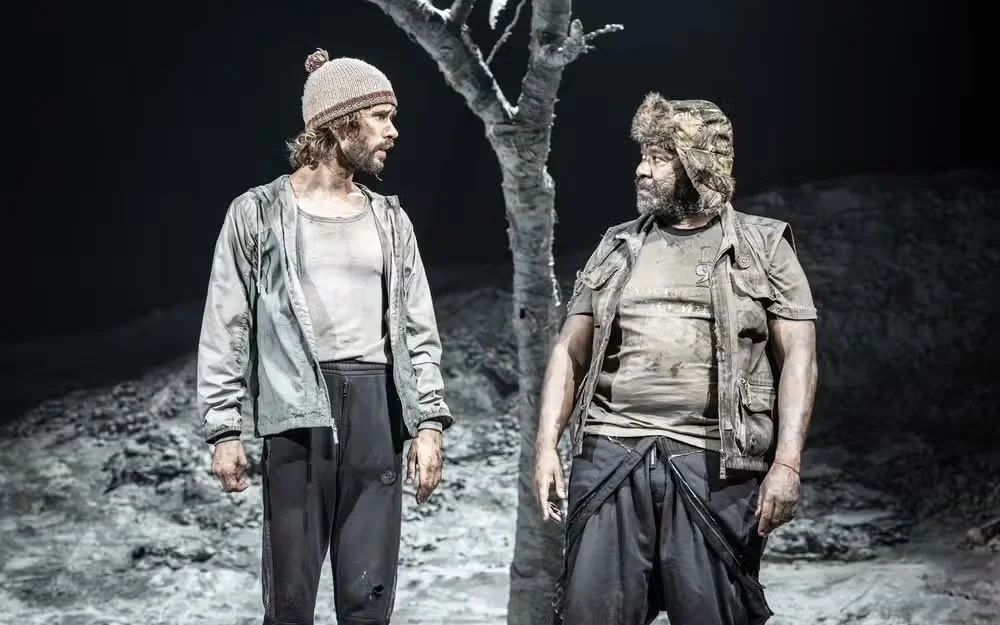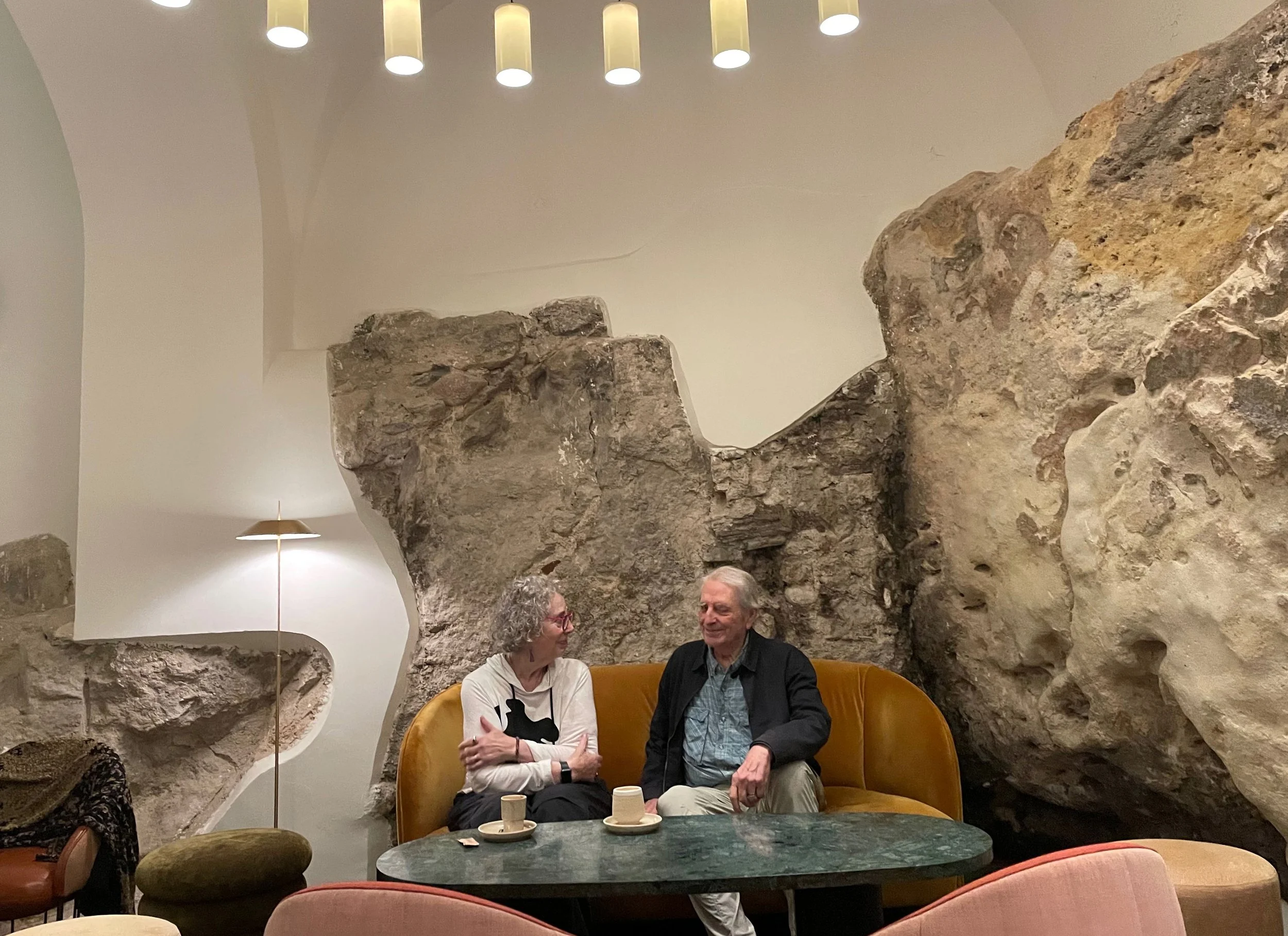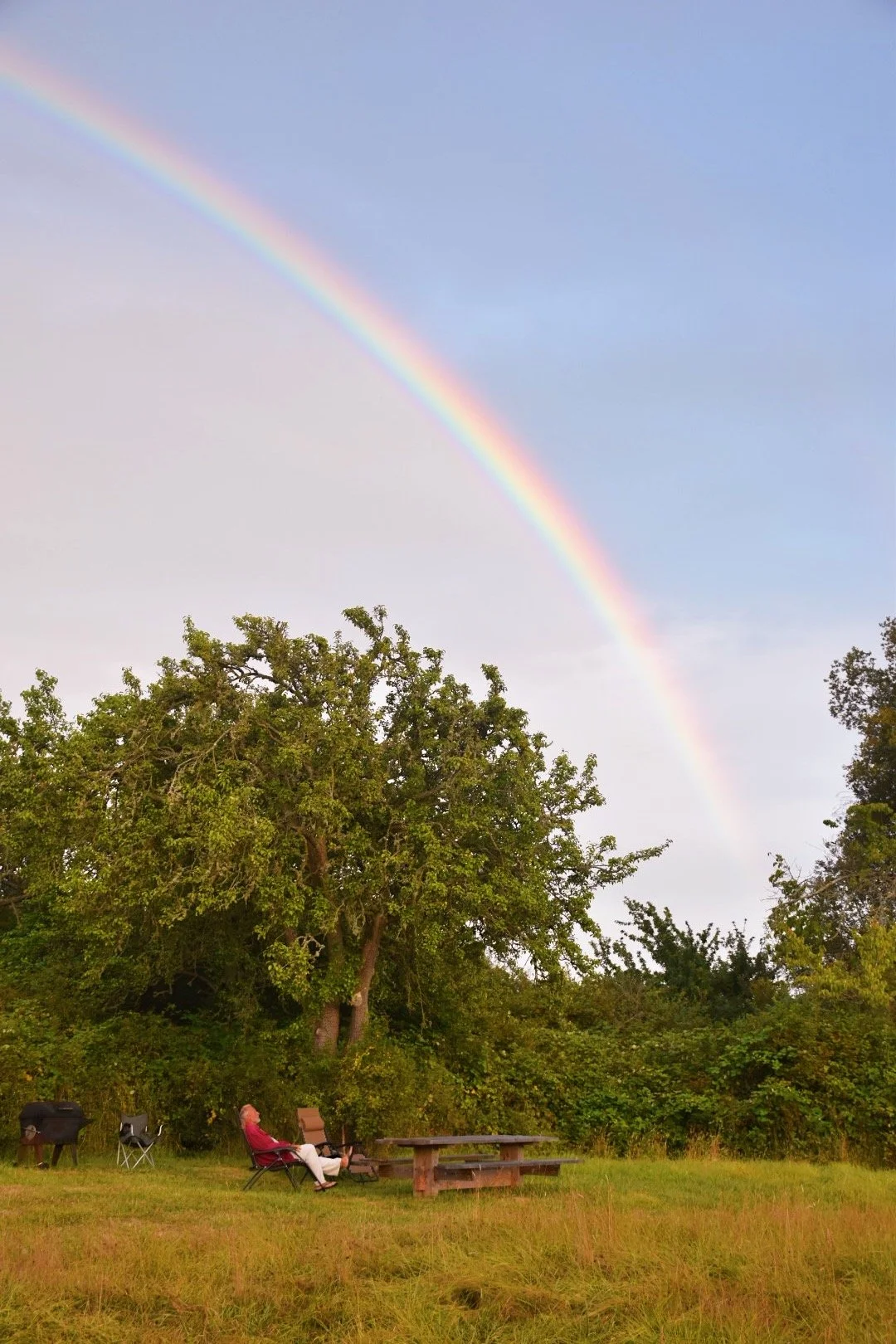After all these years, still waiting for Godot
By Eric Lucas
Whilst waiting for Godot, Estragon and Vladimir are squabbling.
Nothing new about that—the two tramps spend most of their time bickering, fussing, fulminating and cranking, mostly at each other. As with many married couples, this is evidently their language of affection and intimacy, even though these two are not married. Not exactly.
And what are they squabbling about? Hard to say, because their conversations wander like spaceships in the Asteroid Belt. Maybe it's about where Estragon left his over-tight boots the night before, and whether the boots are the problem with his feet. Maybe it's a dispute over what happened yesterday… the answer to which is, not much.
No matter. Eventually the boots are found, what little steam the squabble had fades, and the two embrace.
"We always find something, eh Didi, to give us the impression we exist?" Estragon tells Vladimir.
"Yes, yes," Vladimir agrees, "we're magicians."
And that's as much spiritual triumph as aging hobos can muster.
I first heard these mesmerizing lines more than a half century ago, in a small backstreet semi-professional theater at the edge of the French Quarter in New Orleans, where I grew up in the Sixties. We were avidly seeking meaning back then. Question authority. Question everything. No piece of 20th century literature achieves that better than Samuel Beckett's 1949 masterpiece Waiting for Godot, the linchpin on which he won the Nobel Prize in 1969—the year I first saw the play.
It's no accident that Godot arose at midcentury in the human race's most awful era. World War II had erased 100 million people—humanity's deadliest conflict. Beckett was in the thick of it: In the Thirties he left Ireland in disgust after publishing a much-vilified satirical parody, moved to Paris ("I prefer France at war to Ireland at peace") and as members of the French Resistance he and his wife, pianist Suzanne Déchevaux-Dumesnil, had to hide for two years in a small village in the south of France, Roussillon. There's a yearly Beckett festival there now. On the way south, they slept in haystacks during the day and walked under cover of night.
Before he met Suzanne, he'd been stabbed by a pimp, but after the attacker apologized, Beckett declined to press charges, even though he nearly died. His hospital stay was sponsored by James Joyce. At one point he had a brief affair with Peggy Guggenheim, and he spent his time debating philosophy in the cafes of the Left Bank with Marcel Duchamp, Alberto Giacometti, Jean-Paul Sartre and more.
In other words, he followed Marcus Aurelius's famous dictate: "Live first, then philosophize."
Betrayed to the Gestapo in wartime France, married to a classical pianist, compadre to the 20th century's most famous artists, writers and thinkers, Beckett was bathed in humanity's hardest questions:
What is life? Why are we here? Are we here? How can we find out?
Anyone who can totally, concretely prove that we exist, please send me the data—we'll win the Nobel Prize. Meanwhile, I recently saw Godot once more, at Theatre Royal Haymarket in London, the world capital of theater, in a sensational production that perfectly captured Beckett's vision of the play as a tragicomedy. He wrote it in Paris in 1949, and in the 40 years of life that followed, steadfastly refused to provide explanations of the work, which burst onto the world scene like a volcano in London in 1955.
It has flamed across the ceilings of human thought ever since; a 1999 British National Theatre poll voted it the most significant play of the 20th century. Britain remains its greatest home, though I doubt most members of the TikTok generation have ever heard of it; and after Godot English-language drama devolved into a risible miasma of Disneyfied Andrew Lloyd Webber tripe. Godot is thus the last chapter of its type; luckily, its longevity holds fast, just like Estragon and Valdimir. Next spring brings another new production in York starring the incomparable Gary Oldman, the UK's most celebrated actor today. Throughout his life, Beckett's only concession to public clamor was to declare that Godot is not God… Obviously, pilgrims; he wrote the script in French, in which dieu is God.
Godot is a confounding, mesmerizing, often funny and often devastating play. It is also quite entertaining, but many viewers overlook that, blinded by its rigorous challenge to the intellect. Estragon and Vladimir seem to be abject failures at life; they are joined by just two other characters, Pozzo and Lucky, the latter apparently a slave who is tied to Pozzo by a noose around his neck. The only things on stage are a rock and a willow tree that appears dead. The only plot development is that when Pozzo and Lucky reappear in the second act, the former has become blind and the latter is now leading him safely through life.
The script is the pinnacle of what's known as Theater of the Absurd. If you Google Godot, you'll find literally thousands of different interpretations. What's the message? How can we understand this? Tell me what it means!
"If people want to have headaches among the overtones, let them," Beckett famously snarled. "And provide their own aspirin." A jibe that, when you think about it, is a cranky but concise summation of existentialism.
Godot is almost universally described as a bleak, black picture of life's meaninglessness and absurdity, but that is the easy way out. I see it exactly opposite: It depicts the very essence of human meaning, our bonds to each other. Throughout the play, there is one narrative trajectory above all: Estragon and Vladimir, and Pozzo and Lucky, despite every opportunity, refuse to leave each other.
"We're all just walking each other home," said American mystic Ram Dass.
Dawn is rising here at Owl Feather Farm. The sky is shifting from tourmaline to gentian to its usual autumn aquamarine. I've got to set aside the keyboard and head outside to turn Cereus and Cocoa out to graze. Then it's time to fix breakfast for Nicole and our two dogs, Simon and Blue.
Giving myself the impression we exist.
Lifelong journalist and editor Eric Lucas lives on a small farm on an island north of Seattle, where he grows organic hay, garlic, apples, corn and beans. To sign up for Eric’s blog, email him at ericplucas@yahoo.com. Learn more at TrailNot4Sissies.com.
Photo: https://www.standard.co.uk/culture/theatre/waiting-for-godot-theatre-royal-haymarket-review-b1183120.html




